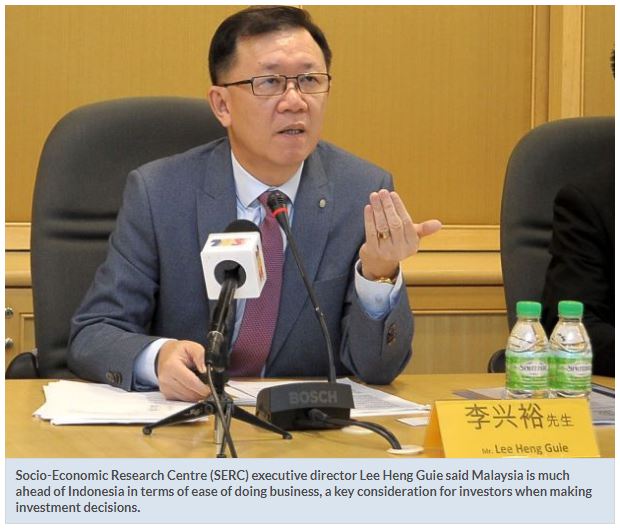Malaysia unaffected by Indonesia’s new labour law
PETALING JAYA: Indonesia’s drastic move to attract investments by amending 79 laws in a single stroke recently, which include abolishing sectoral minimum wage and easing labour regulations, has raised questions on whether it would render Malaysia less attractive in the eyes of foreign investors compared to its neighbour.
Malaysia is already facing stiff competition from low-wage labour countries in South-East Asia such as Vietnam, Myanmar and Cambodia. Hence, there are concerns that Indonesia’s controversial step to appeal to investors may further add to the competition.
Riots have erupted in Indonesia following the passing of the “omnibus” jobs-creation bill last week. Critics and protesters, which include workers and students, have said the amendments would oppress labour rights.
As trade tensions between the United States and China remain elevated, this has created a window of opportunity for Malaysia to attract companies leaving China to avoid tariffs.
However, Malaysia faces tough competition from other regional countries that may be more favourable to foreign investors due to their low-cost business environment.
Economists said Malaysia would not be affected by Indonesia’s drastic easing of labour and business regulations, although the country needs to continuously ensure its competitive edge among regional countries.
Bank Islam Malaysia Bhd chief economist Mohd Afzanizam Abdul Rashid said that it would not be an “apple-to-apple comparison” in discussing the impact of Indonesia’s recent job-creation omnibus law on Malaysia.
He believes that Malaysia has its own niche compared to Indonesia when it comes to appealing to foreign investors.
“We have fairly decent infrastructure to start with. We have a reliable supply of electricity, wide paved roads and highways, ports as well as a pro-business government.
“In addition, the government’s handling of the Covid-19 outbreak could be a plus point from the foreign direct investment or FDI standpoint, ” he said.
However, he cautioned that Malaysia should not be resting on its laurels.
“While economic and institutional reforms would take a while to materialise, simplifying the investment process as well as providing a hassle-free experience for foreign investors could be the low-hanging fruits.
“I would also like to think that Malaysia has a great talent pool and an English-conversant society.
“This would make setting up a production hub here with high value added focus to be executed at a reasonable pace.
“There are also capable small and medium enterprises which could support the local supply chain, thereby ensuring a smooth production process.
“This will be our comparative advantage that will separate us from the rest of the pack, ” Mohd Afzanizam said.
Mohd Afzanizam also urged the government to focus on the country’s strengths in order to attract foreign investors.
Echoing a similar view, Socio-Economic Research Centre (SERC) executive director Lee Heng Guie said Malaysia is much ahead of Indonesia in terms of ease of doing business, a key consideration for investors when making investment decisions.
“Malaysia was ranked 12th among 190 global economies in the World Bank’s Ease of Doing Business 2020, which is markedly higher than Indonesia’s ranking of 73rd placing.
“Particularly, under the index in terms of starting a business, Malaysia was ranked 126th while Indonesia was 140th.
“Meanwhile, in terms of Global Competitiveness Index 2019, Malaysia was ranked 20th in labour market versus 85th for Indonesia, ” he said.
Lee, however, pointed out that Indonesia appeared more attractive to foreign investors if minimum wages and corporate tax rates were taken into account.
For context, Malaysia’s minimum wage ranges between US$255 and US$278 as compared to Indonesia’s US$250 and US$269.
In addition, Malaysia’s corporate tax rate of 24% is a tad higher than Indonesia’s 22% in 2020-2021, and 20% in 2022, according to Lee.
When asked whether Indonesia’s move to ease its regulations would attract existing investors in Malaysia to shift their operations to the republic, Lee said that any shift by investors would include consideration on various economic and non-economic factors, and not just low wage rates.
“They would consider other economic and non-economic factors such as bureaucratic inefficiency, access to financing and identified corruption as well as the supply of infrastructural facilities etc in committing long-term investment in those countries, ” he added.
Source: https://www.thestar.com.my/business/business-news/2020/10/13/malaysia-unaffected-by-indonesias-new-labour-law


 Thailand
Thailand




